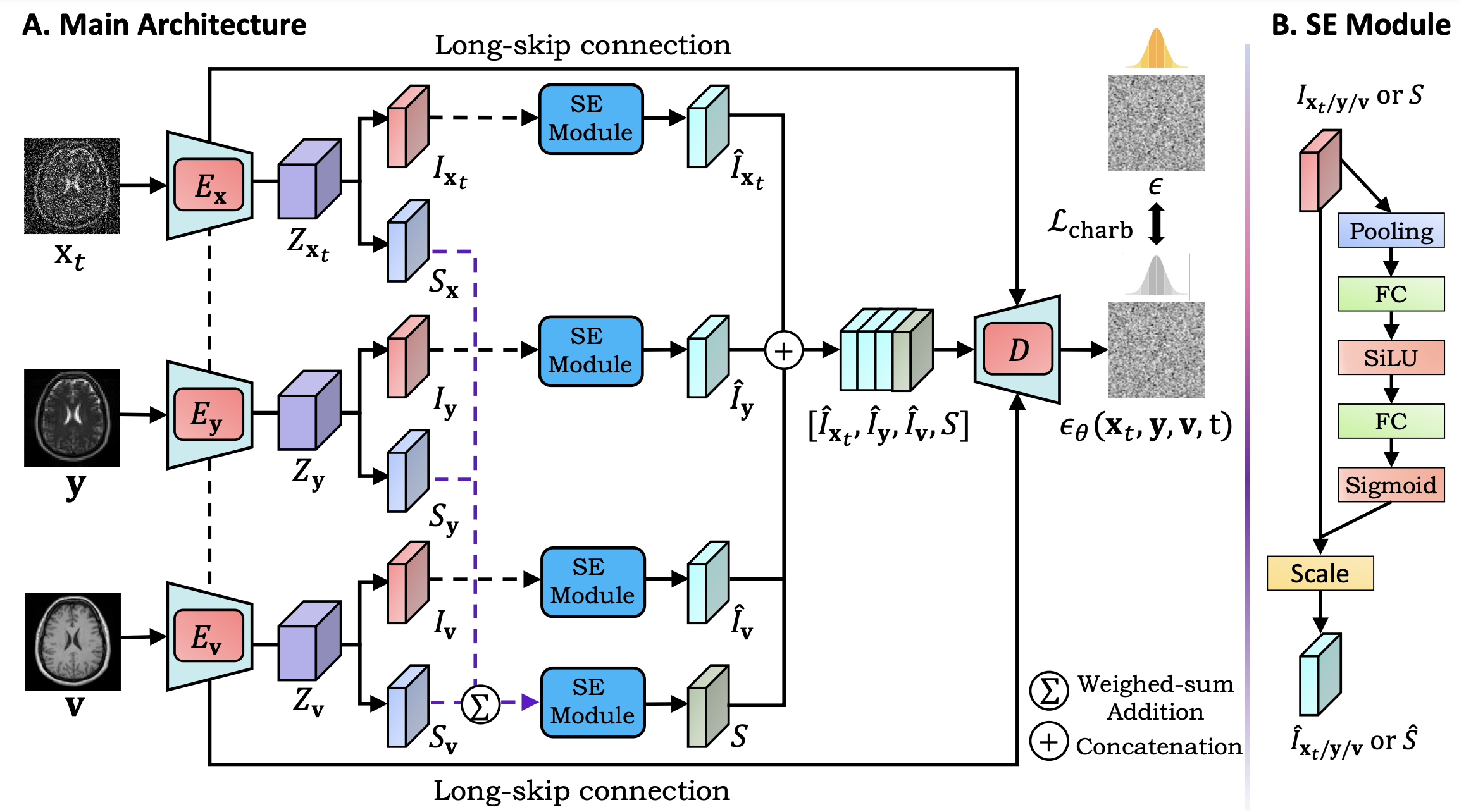DisC-Diff: Disentangled Conditional Diffusion Model for Multi-Contrast MRI Super-Resolution
Multi-contrast magnetic resonance imaging (MRI) is the most common management tool used to characterize neurological disorders based on brain tissue contrasts. However, acquiring high-resolution MRI scans is time-consuming and infeasible under specific conditions. Hence, multi-contrast super-resolution methods have been developed to improve the quality of low-resolution contrasts by leveraging complementary information from multi-contrast MRI. Current deep learning-based super-resolution methods have limitations in estimating restoration uncertainty and avoiding mode collapse. Although the diffusion model has emerged as a promising approach for image enhancement, capturing complex interactions between multiple conditions introduced by multi-contrast MRI super-resolution remains a challenge for clinical applications. In this paper, we propose a disentangled conditional diffusion model, DisC-Diff, for multi-contrast brain MRI super-resolution. It utilizes the sampling-based generation and simple objective function of diffusion models to estimate uncertainty in restorations effectively and ensure a stable optimization process. Moreover, DisC-Diff leverages a disentangled multi-stream network to fully exploit complementary information from multi-contrast MRI, improving model interpretation under multiple conditions of multi-contrast inputs. We validated the effectiveness of DisC-Diff on two datasets: the IXI dataset, which contains 578 normal brains, and a clinical dataset with 316 pathological brains. Our experimental results demonstrate that DisC-Diff outperforms other state-of-the-art methods both quantitatively and visually.
PDF Abstract


